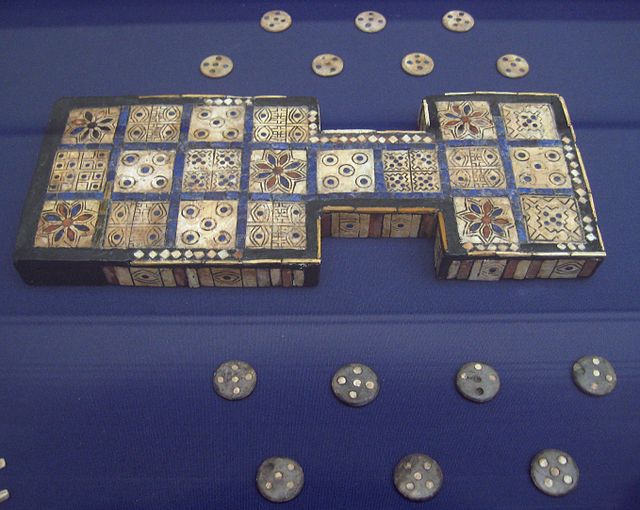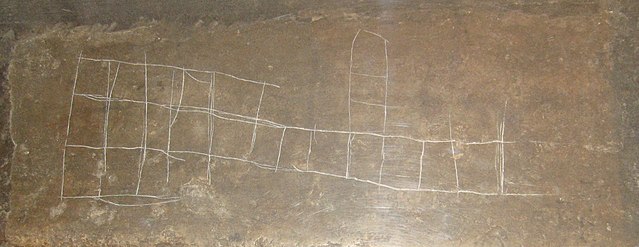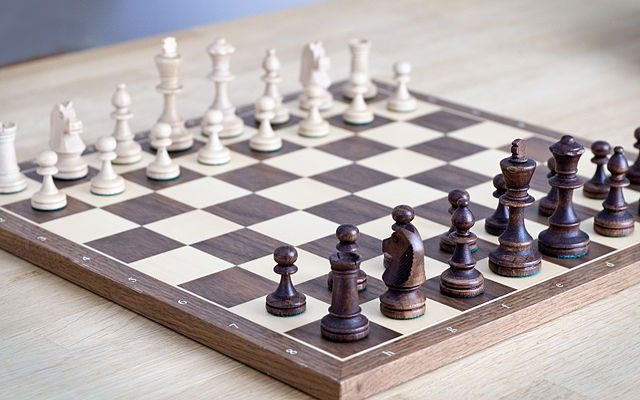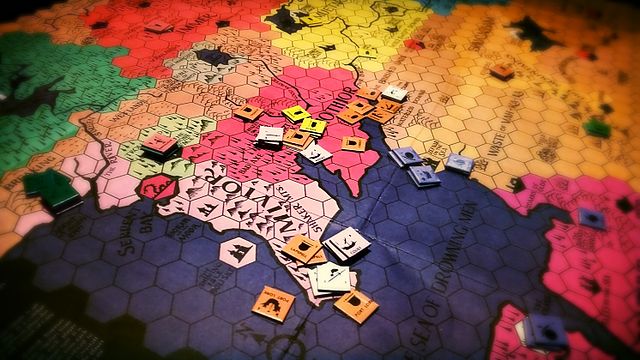The Royal Game of Ur is a two-player strategy race board game of the tables family that was first played in ancient Mesopotamia during the early third millennium BC. The game was popular across the Middle East among people of all social strata, and boards for playing it have been found at locations as far away from Mesopotamia as Crete and Sri Lanka. One board, held by the British Museum, is dated to c. 2600 – c. 2400 BC, making it one of the oldest game boards in the world.
One of the five gameboards found by Sir Leonard Woolley in the Royal Cemetery at Ur, now held in the British Museum
A graffito version of the game from the palace of Sargon II (British Museum in London)
A game box for playing senet and Twenty Squares, 1635–1458 BC
The rules tablet dated 177 BC (British Museum)
A strategy game or strategic game is a game in which the players' uncoerced, and often autonomous, decision-making skills have a high significance in determining the outcome. Almost all strategy games require internal decision tree-style thinking, and typically very high situational awareness.
Chess is one of the most well-known and frequently played strategy games.
Strategy game
A German military wargame from 1824







